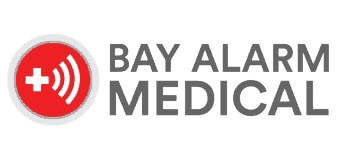The 3 Best Medical Alert Systems With GPS, Tested by Caregivers
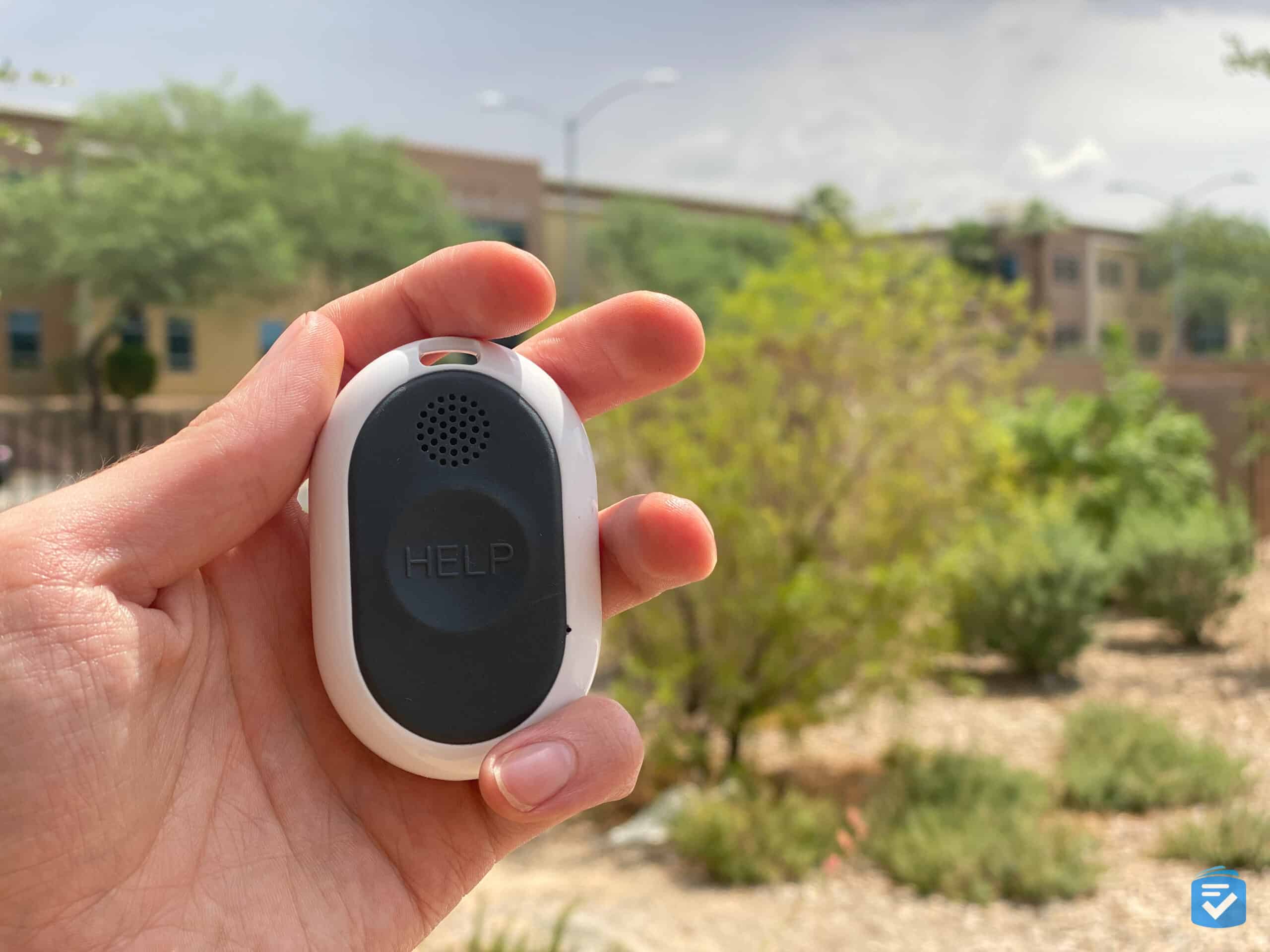
Key Findings
- Bay Alarm Medical’s GPS systems gave us accurate location information, and they cost as low as $29.95 per month.
- Medical Guardian systems, while more costly, gave us the fastest emergency response times.
- The Lively Mobile2 had the best app for caregivers — allowing loved ones to track a device’s location and receive proactive alerts.
How GPS Medical Alerts Work
To see a GPS medical alert system in action, watch this short video.
Why Trust Us?
At TheSeniorList.com, our team of caregivers, experts, and healthcare professionals conducted over 5,000 hours of in-depth research and testing. Now, we’re able to recommend the most reliable brands and devices. In this process, our team:
- Tested 50 medical alert devices from 15 different brands.
- Surveyed 1,250 seniors and caregivers on medical alert system usage.
- Consulted with nurses, EMTs, and caregivers who are experts at caring for older adults.
- Published dozens of videos that demonstrate our medical alert system testing.
- Evaluated verified customer reviews of medical alert companies from the Better Business Bureau.
How We Test Medical Alert Systems
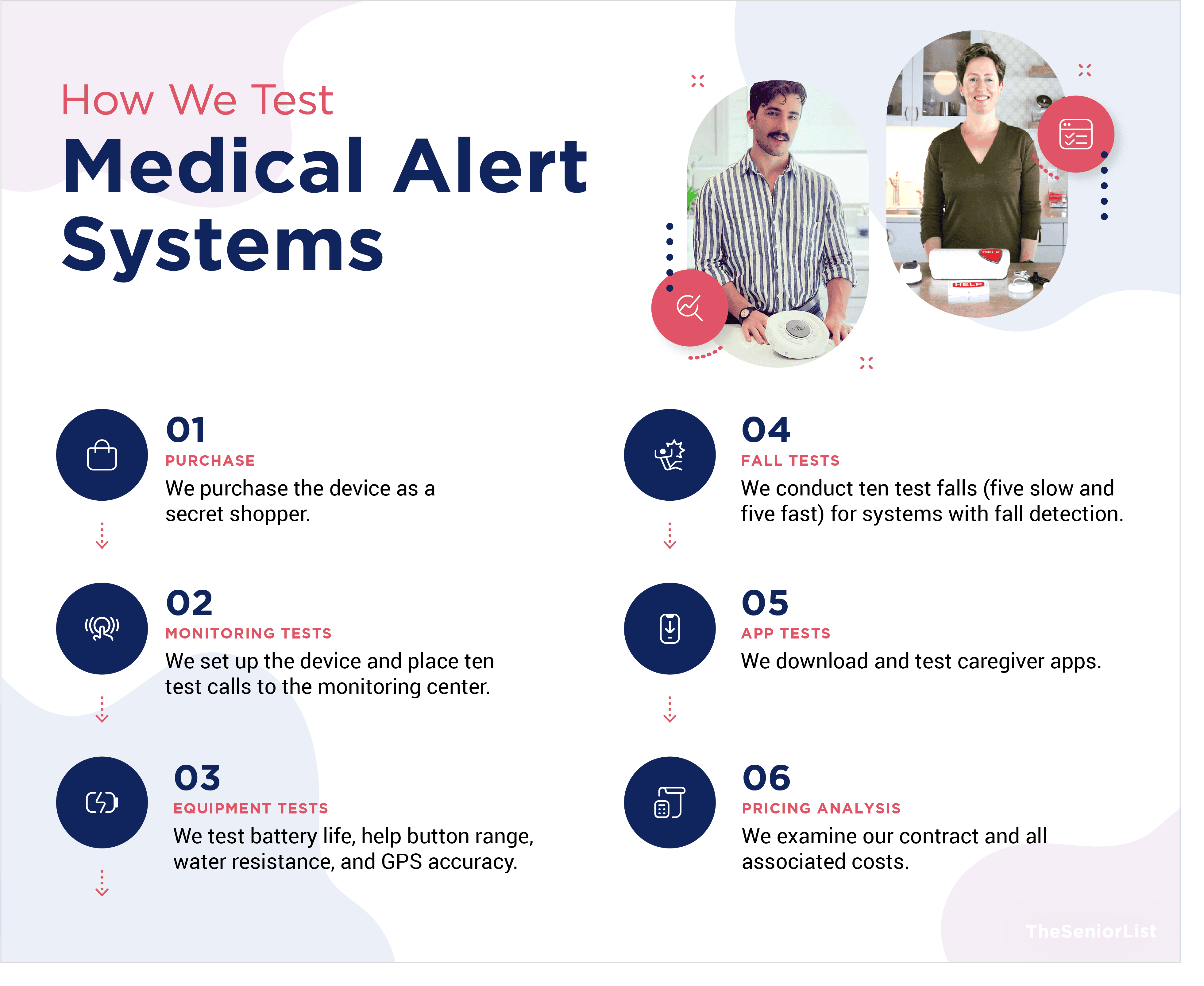
To create this list, we tested 15 GPS-equipped medical alert systems from 10 different companies. When choosing the best GPS medical alerts, we evaluated them based on the following criteria:
- Accurate location tracking: Companies build medical alerts with GPS so that monitoring agents and caregivers can track a user’s location. So, we tested each of these devices for accuracy.
- All-in-one devices: Many GPS medical alerts require additional help and fall detection buttons. So, we looked for companies that combine everything into one device for easy transport.
- Caregiver apps: We tested out the companion apps from each system, and we evaluated how they promote well-being and remote care.
- Durability: Unlike in-home systems that sit safely on a table or counter, a GPS medical alert goes wherever you go. With this in mind, we looked for devices that could withstand falls and even submersion in water.
- Battery life: Since a mobile medical alert device runs on a rechargeable power supply, we tested each of these devices to ensure they lasted at least three days on a single charge.
- Smartwatch options: Not everyone is a fan of the clinical look of medical alerts, so we gave bonus points to providers that offered a medical alert watch — a discreet alternative to traditional medical alerts.

The 3 Best Medical Alert Systems With GPS
- Bay Alarm Medical : Best Overall Systems
- Medical Guardian : Fastest Response Times
- Lively Mobile2 : Most Affordable System
The Best Medical Alert Systems With GPS
1. Bay Alarm Medical - Best Overall Systems
What We Like Most:
- 30-day risk-free trial
- Optional fall detection
- Location tracking on mobile units
- Systems starting at $19.95 per month
Overview
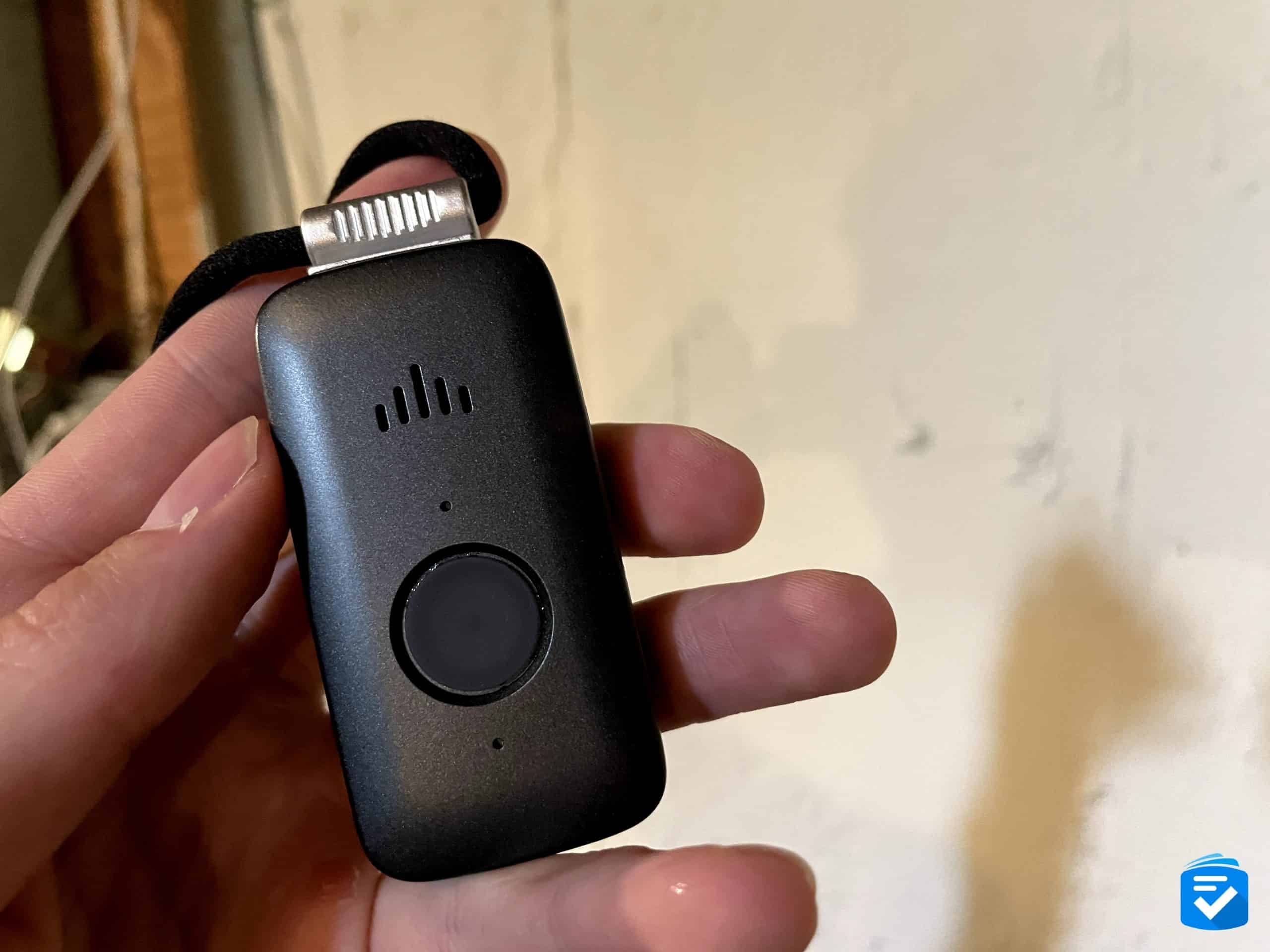
Due to their stellar monitoring and support, Bay Alarm Medical systems have long been some of my favorites. With quick response times (averaging 16 seconds), built-in fall detection, and location tracking for caregivers, the company’s GPS systems performed the best in our tests.
Bay Alarm GPS Systems
Bay Alarm Medical offers three different GPS-equipped devices: the SOS Mobile, the SOS All-In-One 2, and the SOS Smartwatch. While the SOS Smartwatch impressed us with its accurate fall detection, our favorite system would have to be the SOS Mobile.
At $29.95 per month, the SOS Mobile is among the most affordable medical alerts with GPS. At roughly 1.5 by 2.5 inches, it’s also among the smallest systems. This made it comfortable to wear throughout the day. Another unique feature of the SOS Mobile is that it has built-in fall detection. This means that, while we did have to pay an extra $10 per month to activate the feature, fall detection required no extra pendants to function. In our tests, the SOS Mobile detected 4 out of 5 fast falls and 3 out of 5 slow falls, making it among the more accurate fall detection devices.
With any Bay Alarm Medical system, you’ll also get free access to the Bay Alarm Medical app. Through this app, loved ones can track a device’s live location, battery life, and cellular strength. It will also send loved ones notifications in the event an emergency call is placed. If a user has loved ones who live nearby, this app would make it much easier to stay on top of their care.
To learn more about Bay Alarm Medical’s app and the features of its different systems, read my full Bay Alarm Medical review.
Pros
- Two U.S.-based monitoring centers
- Water-resistant devices
- Compact size
- 4G LTE cellular connection
- Detailed caregiver tracking
- Accurate fall detection
Cons
- Extra cost for fall detection
- $99 one-time device cost

2. Medical Guardian - Fastest Response Times
What We Like Most:
- Eight-second average response times
- No long-term contracts
- Accurate fall detection
- 24/7 U.S.-based monitoring
Overview
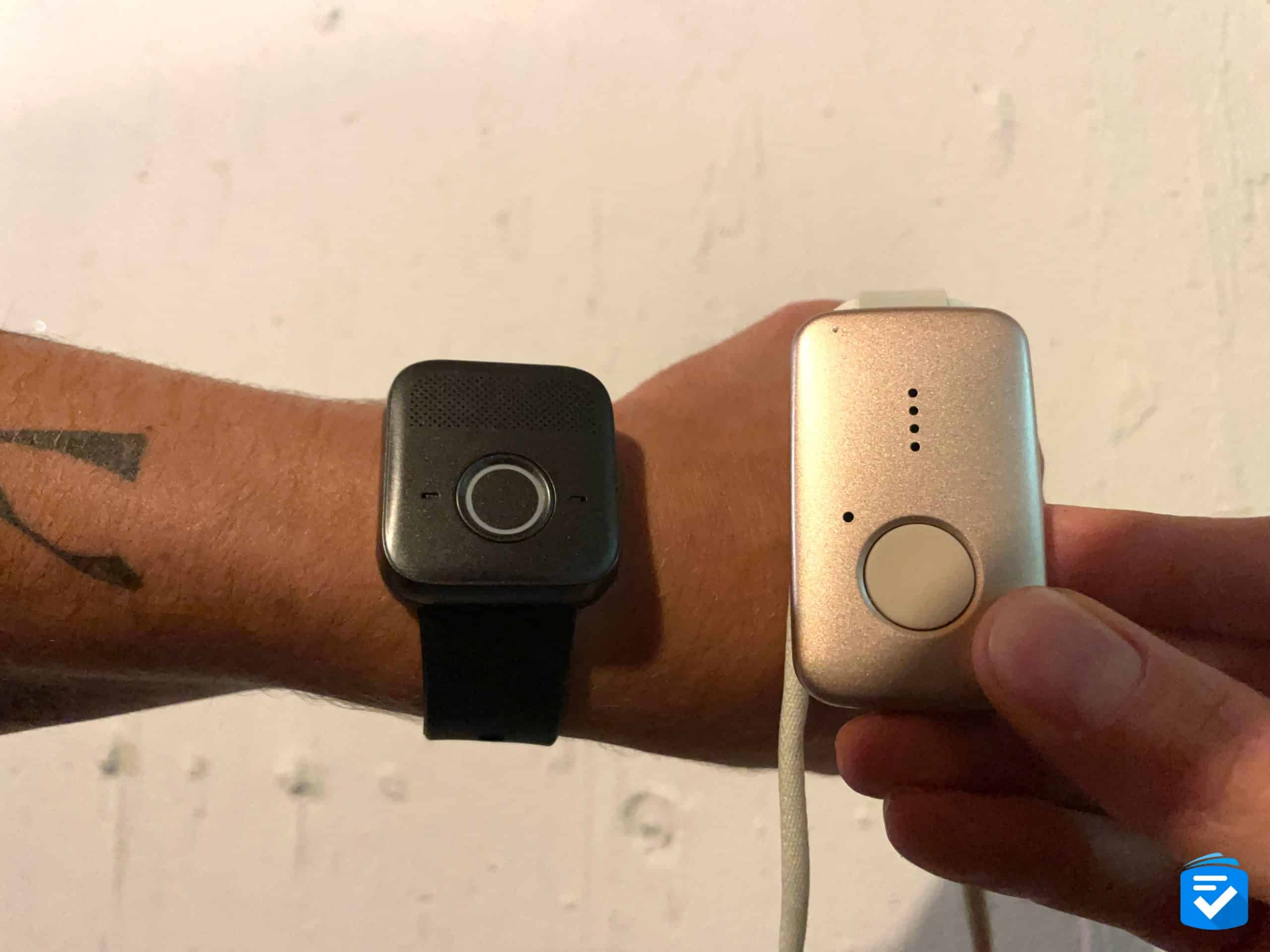
I won’t lie. Medical Guardian costs a bit more than the other entries on this list. However, they delivered the fastest response times of any system we tested, averaging eight seconds in all of our test calls. If you want a GPS medical alert that can give you the quickest access to help, then Medical Guardian is a solid bet.
Medical Guardian GPS Systems
Currently, Medical Guardian offers three different GPS systems: the MGMini, the MGMini Lite, and the MGMove Watch. Our favorite would have to be the MGMini Lite. Unlike the other devices on this list, which are worn as medical alert necklaces, the MGMini Lite is worn as a bracelet. Our testers agreed that this style was not only more discreet but also more comfortable.
The MGMini Lite gave us Medical Guardian’s signature fast response times. Plus, we were impressed by its fall detection — accurately detecting all five of our fast falls and three slow falls. Despite all of these test falls, the MGMini Lite held up with no damage. Also, with its IP67 water-resistance, it can travel into the shower, which is a frequent site of falls.
Like all Medical Guardian systems, the MGMini Lite is compatible with the MyGuardian caregiver app. This app allows us to track a device’s live location, view its battery life, and even cause it to ring. The latter is useful if your loved one misplaces it.
The one disappointment with Medical Guardian is its higher costs. Systems with GPS start at $39.95 per month, and they require one-time equipment fees of $149.95 at a minimum. That said, it’s hard to beat their performance.
To see our entire hands-on test of Medical Guardian’s systems, read our full Medical Guardian review.
Pros
- Accurate GPS
- Reliable fall detection
- Bracelet and pendant options
- No long-term contracts
- Water-resistant devices
- Smartwatch available
Cons
- More costly than other systems
- No 30-day trial period
3. Lively Mobile2 - Most Affordable System
What We Like Most:
- Starting at $24.99 per month
- Quick response times
- Free caregiver app
- Optional nurse hotlines
Overview
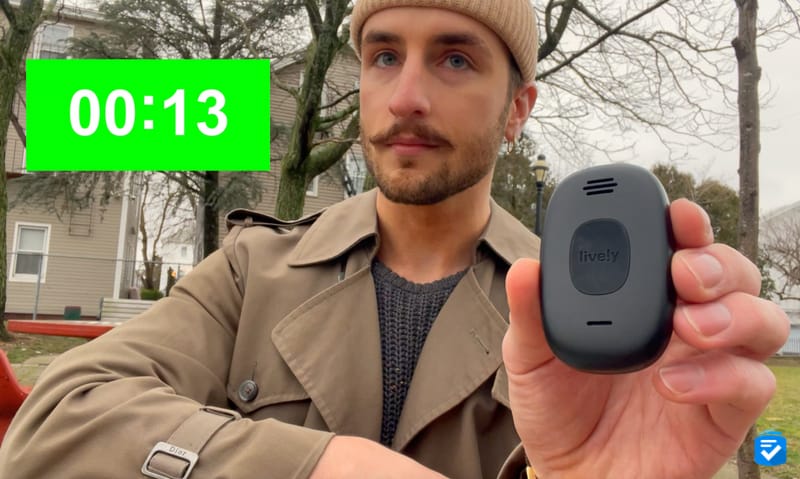
At $24.99 per month, the Lively Mobile2 costs less than any mobile system we’ve tested. That said, it performed among the best — giving us access to help in an average of 13 seconds.
Lively GPS Systems
Unlike the other companies on this list, Lively offers only one GPS system: the Lively Mobile2. Much like the SOS Mobile, this device is worn as a pendant, and it features built-in fall detection. It’s also rated IPX7 in terms of water-resistance, meaning it can withstand immersion in water.
Quick response times aside, what we loved most about the Lively Mobile2 was its caregiver app: Lively Link. Through this app, loved ones can view a device’s live location, as well as monitor its battery life and cellular signal. This app will also send push notifications to loved ones in the event of a fall or emergency call. Furthermore, of all the apps on this list, Lively Link has the most intuitive interface.
While Lively Mobile2 plans start at $24.99 per month, the company offers a premium plan for $34.99 per month. With this plan, a user can call a 24/7 nurse hotline through their Mobile2 device. In our experience, these nurses were adept at answering quick health-related questions.
Read my Lively Mobile2 review to learn more about the premium plan’s features.
Pros
- Waterproof devices
- No long-term contracts
- Free app access
- Quick monitoring response times
- Access to medical information
- Detailed location tracking
Cons
- $79.99 one-time device fees
- False alarms with fall detection
- Shorter battery life

Honorable Mentions
While the following systems did not make the cut, they might work for some users.
- ADT: While ADT’s systems boasted average response times of 14 seconds, we did not like that its mobile system requires an additional pendant for fall detection. Read our full ADT medical alert review to learn more.
- Kanega Watch: This system performed well in our tests, and it even used Wi-Fi in addition to a cellular connection. However, we could not get over its high prices. Read our Kanega Watch review to learn more.
- LifeFone: LifeFone’s VIPx system excelled in almost every area of our tests. However, this system is identical to the Bay Alarm SOS Mobile, and it costs nearly double the price. Read our LifeFone review to learn more.
What Are Medical Alert Systems With GPS?
Many seniors these days lead active, busy lives. After all, getting older doesn’t mean you give up all the things you like. However, it is an unfortunate truth that as we get older, we are more at risk of trips and falls. Thus, our overall health can become a concern.
FYI: There are many different types of medical alert systems. To learn about which one might work for you, check out my medical alert bracelet guide.
GPS medical alerts use the same GPS satellites that guide the GPS system in your car. They’re attuned to a global network of satellites; this means that when the button is pressed, they can locate it precisely. The call center can then send help to that exact location.
Seniors feel better knowing that if they fall or experience a medical emergency when out and about, help is on the way. It’s reassuring for caregivers, too; they know that if something happens, medical alert center staff can locate and get to the scene quickly.
We think GPS alerts are a fantastic choice for people who are still active. And with many companies now creating designs that are sleek, modern, and easy to wear, seniors can feel more comfortable than ever with their choice.
Bottom Line
For active users, a GPS medical alert can protect them no matter where they go. Even if they never need to place an emergency call, having the help button on them will give a person peace of mind. They know that help is only one button-press away.
To learn more about our favorite medical alerts and our full testing results, read our guide to this year’s best medical alert systems.


